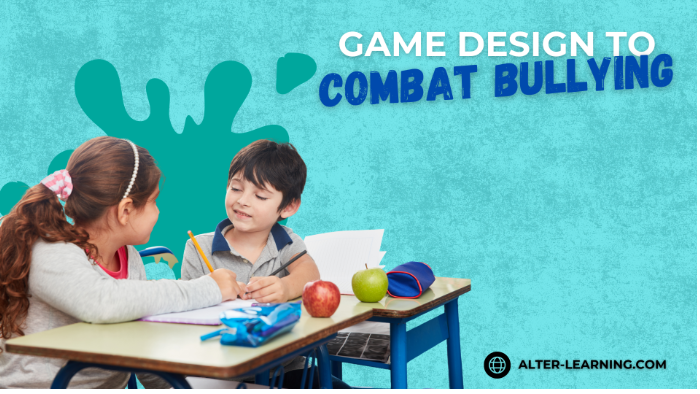Bullying remains one of the most serious challenges facing schools today. It can damage self-esteem, hinder learning, and create long-lasting emotional scars. Traditional anti-bullying programs often rely on rules and awareness campaigns, which can be effective—but may not always reach students on a personal, emotional level.
Game-based learning can offer a new approach. By using the principles of game design—interactivity, empathy, collaboration, and feedback—educational platforms like Alter-Learning can help build positive behavior, empathy, and community among students. Games can’t singlehandedly solve bullying, but they can contribute to environments where respect and cooperation thrive.
How Game Design Can Promote Empathy
At the heart of many bullying behaviors is a lack of empathy. Educational games can help address this by placing students in scenarios that encourage perspective-taking. Through story-driven missions, interactive simulations, or character-based experiences, students can explore the feelings and motivations of others in a safe, structured way.
Some design features that can encourage empathy include:
- Role-switching mechanics, allowing players to experience different perspectives,
- Narrative consequences, where actions impact other characters’ wellbeing,
- Collaborative missions, which reward cooperation over competition,
- Reflective prompts, helping students connect in-game experiences to real-world emotions.
By practicing empathy through gameplay, learners can begin to understand the human impact of their choices.
Building Positive Interaction Through Collaboration
Multiplayer and cooperative mechanics can play a vital role in anti-bullying education. In interactive STEAM learning environments, students can work together toward shared goals—solving engineering challenges, building virtual communities, or designing creative solutions.
Features that can support collaboration include:
- Team-based challenges, where success depends on communication and mutual support,
- Shared objectives, ensuring every player contributes to progress,
- Safe chat and moderation tools, helping model respectful digital communication,
- Peer recognition systems, where positive actions are acknowledged and celebrated.
These mechanics teach that achievement can come not from competition, but from cooperation.
Encouraging Reflection and Responsibility
Good game design can encourage self-awareness. Interactive VR simulations or narrative-based missions can guide students to reflect on the consequences of actions, decisions, and attitudes. When integrated with classroom discussion, these moments can spark meaningful conversations about kindness, inclusion, and respect.
Teachers using Alter-Learning’s tools can:
- Assign group reflections after cooperative challenges,
- Encourage students to identify how teamwork helped them succeed,
- Discuss moments in gameplay that involved conflict resolution or empathy,
- Connect digital interactions to real-life relationships and classroom culture.
These reflective moments turn gameplay into emotional learning.
Accessibility and Safe Design
Creating safe, inclusive digital spaces is key to preventing bullying. Alter-Learning’s focus on accessibility means its platforms can include:
- Options for color-blind and neurodiverse learners,
- Adaptive difficulty settings, preventing frustration and exclusion,
- Moderation features in multiplayer environments to prevent harassment,
- Wellness-centered tools, such as guided exercises that build confidence and self-awareness.
By designing for inclusion, game developers can ensure every child feels welcome and valued—a cornerstone of any anti-bullying effort.
Games as Tools for Emotional Growth
Beyond empathy and collaboration, well-designed educational games can also support social-emotional development. Through safe experimentation, students can learn to:
- Manage frustration and disappointment constructively,
- Practice patience and persistence,
- Build confidence in problem-solving,
- Develop emotional vocabulary through character interaction and storytelling.
These experiences can strengthen resilience and interpersonal skills—two essential defenses against bullying behavior.
Looking Ahead
Bullying prevention requires more than punishment—it requires cultivating empathy, inclusion, and emotional intelligence. Game design offers tools that can help make these lessons experiential rather than theoretical.
Alter-Learning’s approach—blending immersive technology, interactive STEAM learning, and wellness-centered experiences—shows how digital environments can support educators in shaping safe, empathetic, and respectful communities.
When designed with care, games can become more than entertainment—they can become instruments of understanding, helping students see that kindness, cooperation, and compassion are not just good values, but powerful ways to play and learn.
Follow Alter-Learning for more insights into immersive education, edtech success stories, and the future of learning. Want to explore how VR/AR could transform your school or learning platform? Let’s connect.


